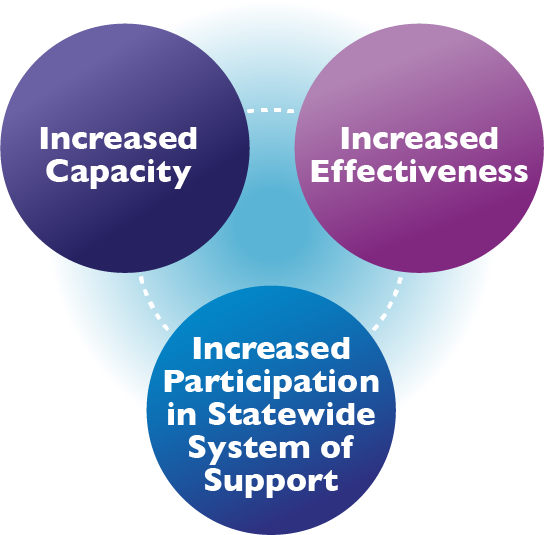The Pathways to Partnership consortium envisions a statewide educational community with the necessary skill sets to prevent, reduce, and resolve conflicts building trust and mutual understanding between families and educational agencies. Our vision embraces resolving conflict at the lowest level, preserving relationships with all members of the IEP team, and ensuring the IEP process is the foundation for positive, equitable student outcomes for all students with disabilities. Our vision seeks to transform the way in which educators respond to conflict and dispute within the California special education system and Statewide System of Support (SSOS) by establishing a sustainable continuum for dispute prevention and resolution that is accessible to all. The program is based on three overarching pillars of support:
